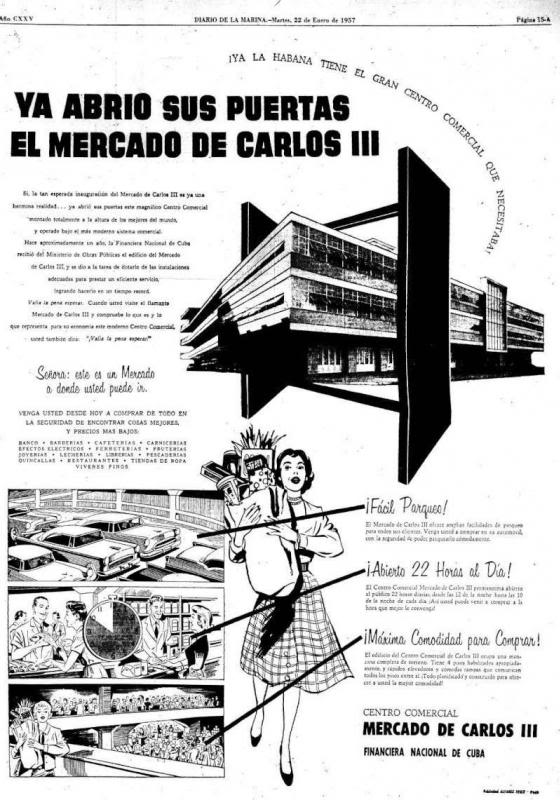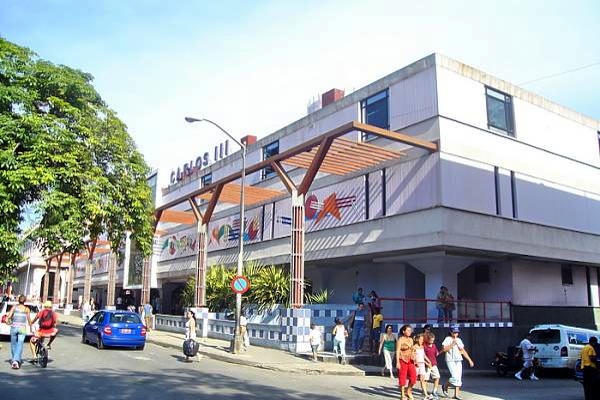The old Carlos III market was transformed into a “mall.” At the beginning, Havanans found a wide selection of merchandise (in CUC — hard currency); today the showcases are empty.
The shelves where the most common ingredients should be found often appear empty or offer only one product of its type without options of quality or size. Those foods that Cubans eat the most are exhausted rapidly, sometimes missing from the shelves for weeks. On the other hand, the most expensive foods stay for sale for so long that many wind up expiring.

Not to mention the toiletry section. This week there was only one kind of soap for sale, a small bar for 0.25 CUC. The counter where there used to appear dozens of offers for varying budgets now presents a desolate emptiness.
Another features of the supermarket is the disorganization. It is no surprise that at midday the aisles are full of boxes, piled one on top of the other. “Don’t touch” has been scrawled on them by the establishment’s clerks, who also work as stockers and have neither time nor intention for assisting customers. The boxes that have been empty for hours still wait for someone to retrieve them.
That same disorder is expressed in that the supermarket’s departments have been inconveniently separated: on one side, the meat and dairy where the rotten odor is unbearable, and there are only two types of cheese. There a Cuban resident of Spain visiting the Island comments to this reporter that she has brought all her food from abroad for her stay, and that she is in the place just to buy something for a friend. “I don’t like the quality here,” she confesses is the motive. On the other side is the preserves department as in other stores where packets of coffee or cookies can be obtained. The products may repeat from one department to another.
The lack of sanitation is also seen in the dust on the bottles of wine in the liquor section, one of the most Cuban products offered. The main current suppliers for the shelves of Plaza Carlos III are the Spanish brands Gourmet or Spar, food of national production has almost disappeared.
In this atmosphere, when a humble and fortunate customer in the end has found what he needs, he must confront a long line to pay because one of the two cash registers never works. The difficult mission of obtaining food ends when, at the exit, a character sometimes not in uniform and with a very bad look on his face treats the clients like criminals, being able to search bags shamelessly.
This process is not applied to foreigner who visit the store. This is done to remind Cubans that, as miserable as the shelves of the supermarket are, also miserable is the spirit that the regime has developed.
Cubanet, February 25, 2014 / Victor Ariel Gonzalez
Translated by mlk.

